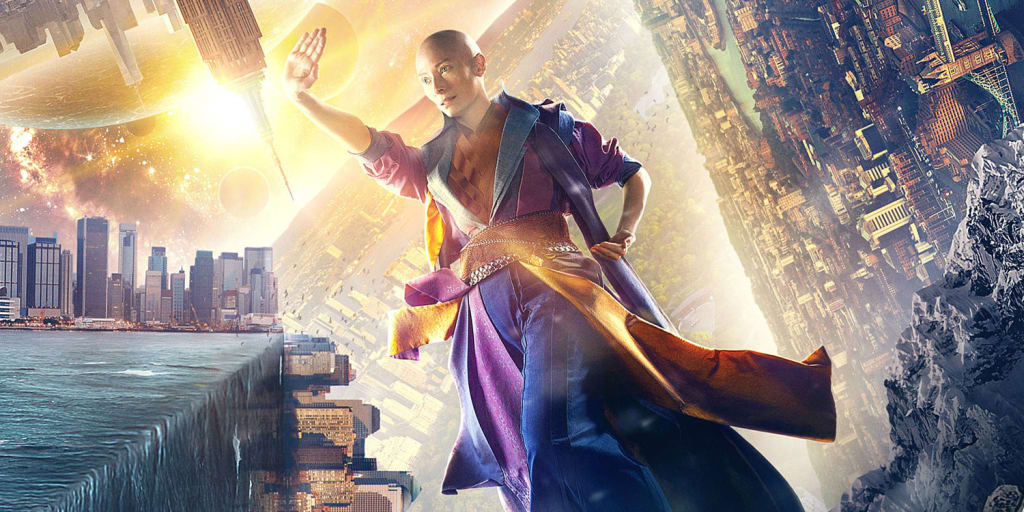
Doctor Strange may have been a blockbuster hit, but it was also a tremendously controversial film. Marvel received real heat over on social media for their casting of Tilda Swinton — a British female actress — as the Ancient One, traditionally a Tibetan mystic. Now, personal correspondence between Tilda Swinton and influential comedian Margaret Cho has illuminated why Swinton felt comfortable taking the role — but was her reasoning justified?
Marvel's Whitewashing Problems
Doctor Strange was always going to cause #Marvel headaches. In the comics, the Sorcerer Supreme was trained by the Ancient One — a Tibetan mystic who, frankly, embodies a lot of pernicious stereotypes. A comic-book-accurate version of the Ancient One would risk embracing these stereotypes. Worse still, as screenwriter C. Robert Cargill observed, it would risk real political issues.
"The Ancient One was a racist stereotype who comes from a region of the world that is in a very weird political place. He originates from Tibet, so if you acknowledge that Tibet is a place and that he’s Tibetan, you risk alienating one billion people who think that that’s bulls**t and risk the Chinese government going, ‘Hey, you know one of the biggest film-watching countries in the world? We’re not going to show your movie because you decided to get political.’
"If we decide to go the other way and cater to China in particular and have him be in Tibet… if you think it’s a good idea to cast a Chinese actress as a Tibetan character, you are out of your damn fool mind and have no idea what the f**k you’re talking about.”
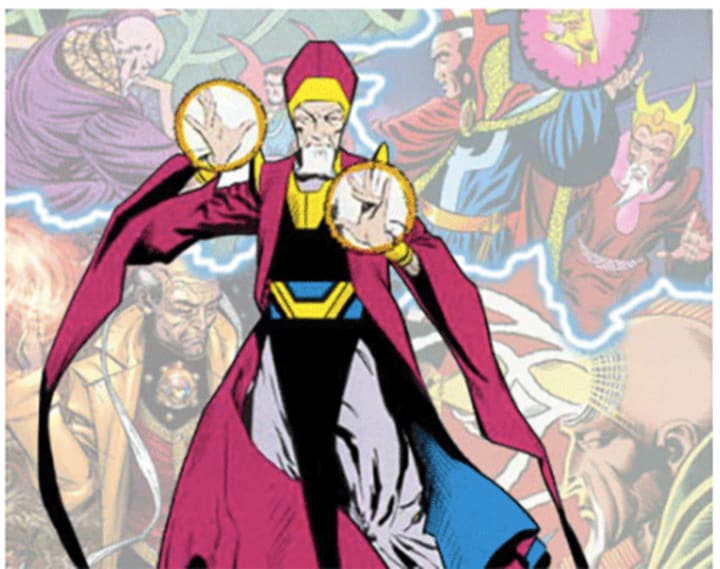
The original Ancient One. [Credit: Marvel Comics]
Marvel decided that they had to reinvent the Ancient One completely, and Scott Derrickson considered casting the role to an Asian woman. Unfortunately, he suspected that this would be considered as an Asian fetish, and would just perpetuate another stereotype — the Dragon Lady. Derickson explained:
"I wasn't going to perpetuate that stereotype. And it would make it all about a Western character coming to Asia to learn about being Asian. It was a minefield."
Marvel considered a wide range of options — Morgan Freeman, Ken Watanabe and Bill Nighy were all considered for the role — but ultimately went with Tilda Swinton. Social media went ballistic at the casting choice. The Ancient One's being recast fits a simple narrative; Hollywood has a bad habit of recasting Asian roles.
We now know that Tilda Swinton was shaken by the furore. Although she doesn't use social media, she couldn't help picking up on the controversy, and she reached out to Margaret Cho for help. Curiously, though, Margaret Cho and Tilda Swinton have now given very different accounts.
According to Cho, the two had a "long fight" about the issue, with Cho spelling out quite clearly that she felt the role should not have gone to Swinton. Cho describes the conversation as ending with Swinton defending herself by arguing she was working with Bong Joon Ho on Okja, a comment that she clearly perceives as tokenistic. She describes the conversation like this:
“It was weird because I felt like a house Asian, like I'm her servant. Like the ones when they have in the raj, they would have the house servant who was your confidante … The servant that was close to you. That's sort of what I felt like, like I was following her with an umbrella. I had a weird feeling about the entire exchange, especially the part of 'Don't tell anybody'.”
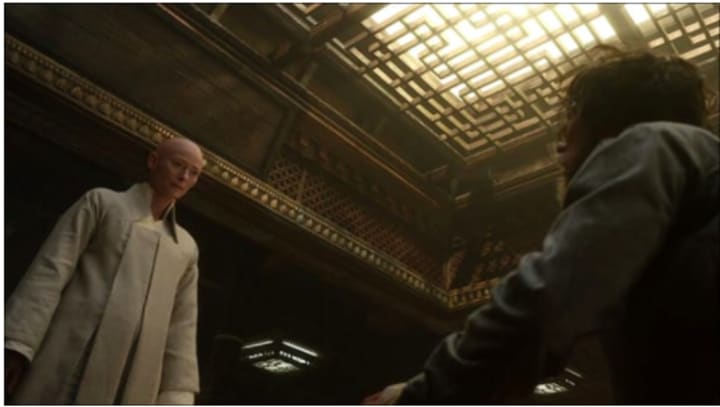
'Doctor Strange'. [Credit: Marvel Studios]
In response, though, Swinton has gone public with the entire email exchange. The emails sound much more cordial, and show Swinton arguing that she took on this role in an attempt to encourage diversity. She observes:
"A - personal - irony to my being even remotely involved in this controversy is what I stand up for and always have. Whether it is challenging the idea of what women look like, or how any of us live our lives, or how we educate our children, diversity is pretty much my comfort zone. The idea of being caught on the wrong side of this debate is a bit of a nightmare to me."
Swinton adds that she sees another irony to the fact that Marvel's catching flak for diversity on this one. She points out that Marvel was actually trying to avoid this issue by recasting the Ancient One, and that the studio actually ensured there was very real diversity in other ways — not least in Chiwetel Ejiofor's being cast as Mordo. In fact, she explains, Marvel's concern for diversity was a big part of what drew her to the role!
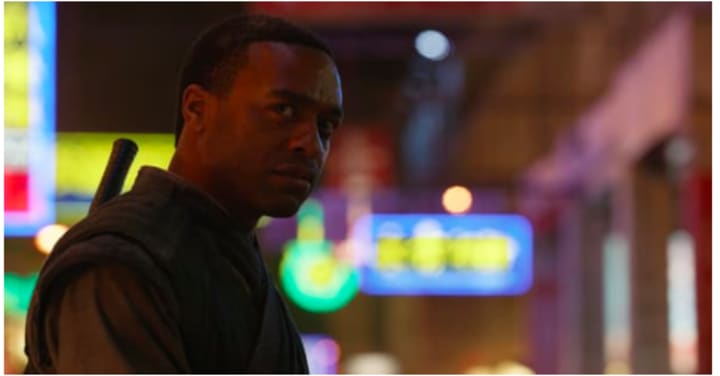
Ejiofor's Mordo in 'Doctor Strange'. [Credit: Marvel Studios]
Far from angry about Swinton's response, Cho initially seemed gratified by it. She explains to Swinton that the anger about whitewashing has been building up for a long time, and that social media has simply been the channel for it. She recommends that Swinton ensure she stresses the diversity of Doctor Strange, and goes on to suggest she work more closely with Asian Americans in Hollywood. In the emails, it's in response to this that Swinton mentions her collaboration with Bong Joon Ho.
I won't lie that, on first read, the emails seem to have a very different spirit to Margaret Cho's initial description of the conversation. Cho, though, maintained a firm stance in a statement to Entertainment Weekly:
"Asian actors should play Asian roles. I believe my emails stand on their own and should be taken for the spirit in which they were intended. I am grateful that the debate has now entered the national discussion and remain a huge fan of Tilda’s."
Other writers of color have stepped up to defend Cho's perspective, arguing that the emails should be read in the context of "white guilt" seeking to be assuaged. The counter-argument to Tilda Swinton's position is actually a simple one; she argues that, while there is indeed a real problem with #whitewashing, Doctor Strange has particular circumstances that exempt it from the controversy. But every instance of whitewashing can be justified as a 'specific case'.
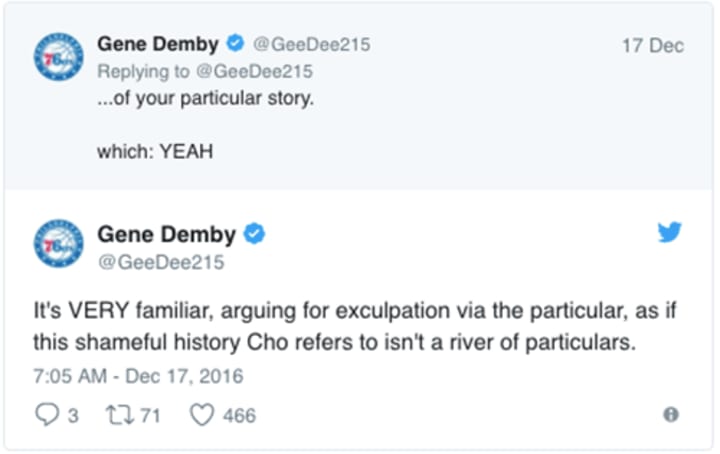
To others, Tilda Swinton's emails are an attempt to avoid the problem by introducing a completely different issue.
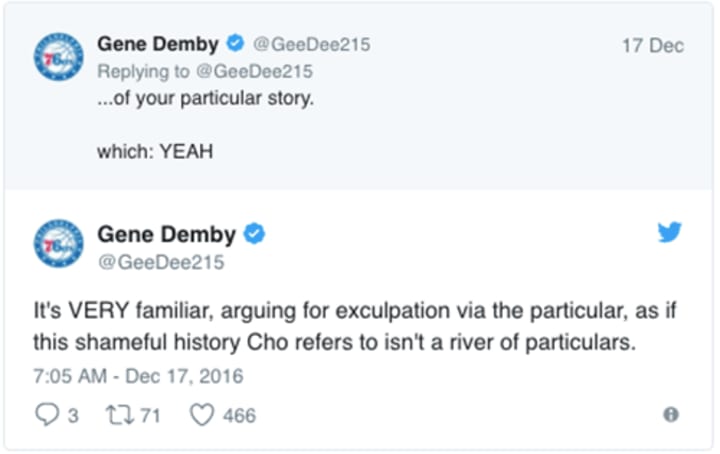
What's more, just because an email exchange reads cordially, it doesn't mean Margaret Cho didn't find the experience weird. As Omar Sakr observed in the Sydney Morning Herald:
"Of course Cho was polite in her emails; if people of colour weren't polite every time we're confronted with problematic behaviour by powerful white people, we'd be rioting every hour of every day."
The whole issue is fascinating, not least because these emails give us an inside glimpse on the controversy. For Tilda Swinton, this was a difficult one made worse because she doesn't use social media; for Margaret Cho, this was a frustrating one because she felt she'd simply been contacted to assuage "white guilt".
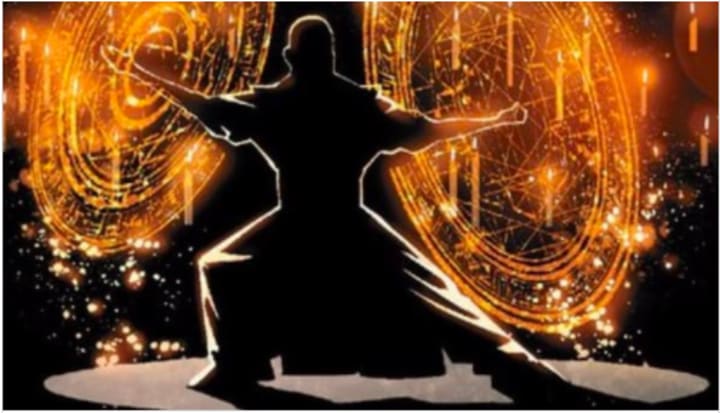
Ultimately, it's pretty clear that this is a difficult problem. My suspicion is that the real reason for Marvel's decision lay with fear of angering China, and that they overcompensated. This was the result. My hope is that, at the very least, this rekindled dialogue will lead us to once again carefully consider this very real issue.
(Sources: Entertainment Weekly, Jezebel, Sydney Morning Herald, The Express, Vulture)
About the Creator
Tom Bacon
A prolific writer and film fan, Tom has a deep love of the superhero genre.


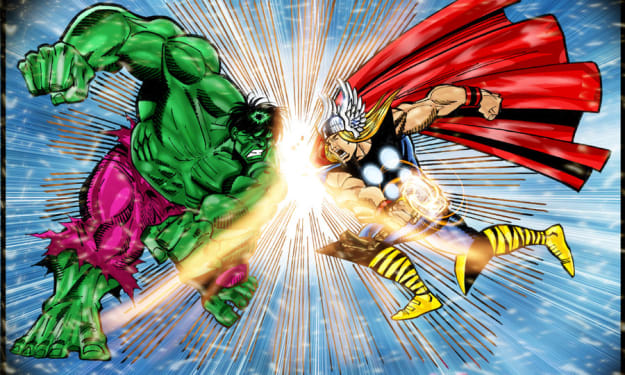

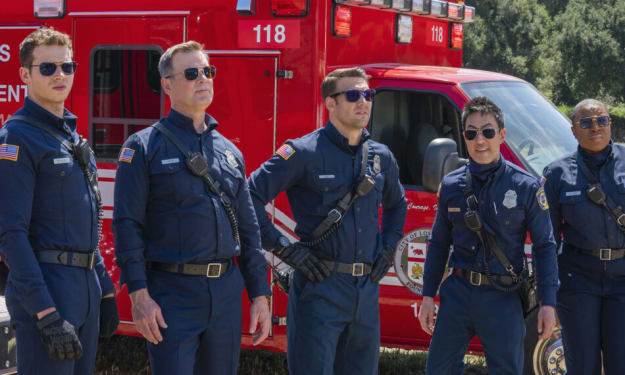

Comments
There are no comments for this story
Be the first to respond and start the conversation.